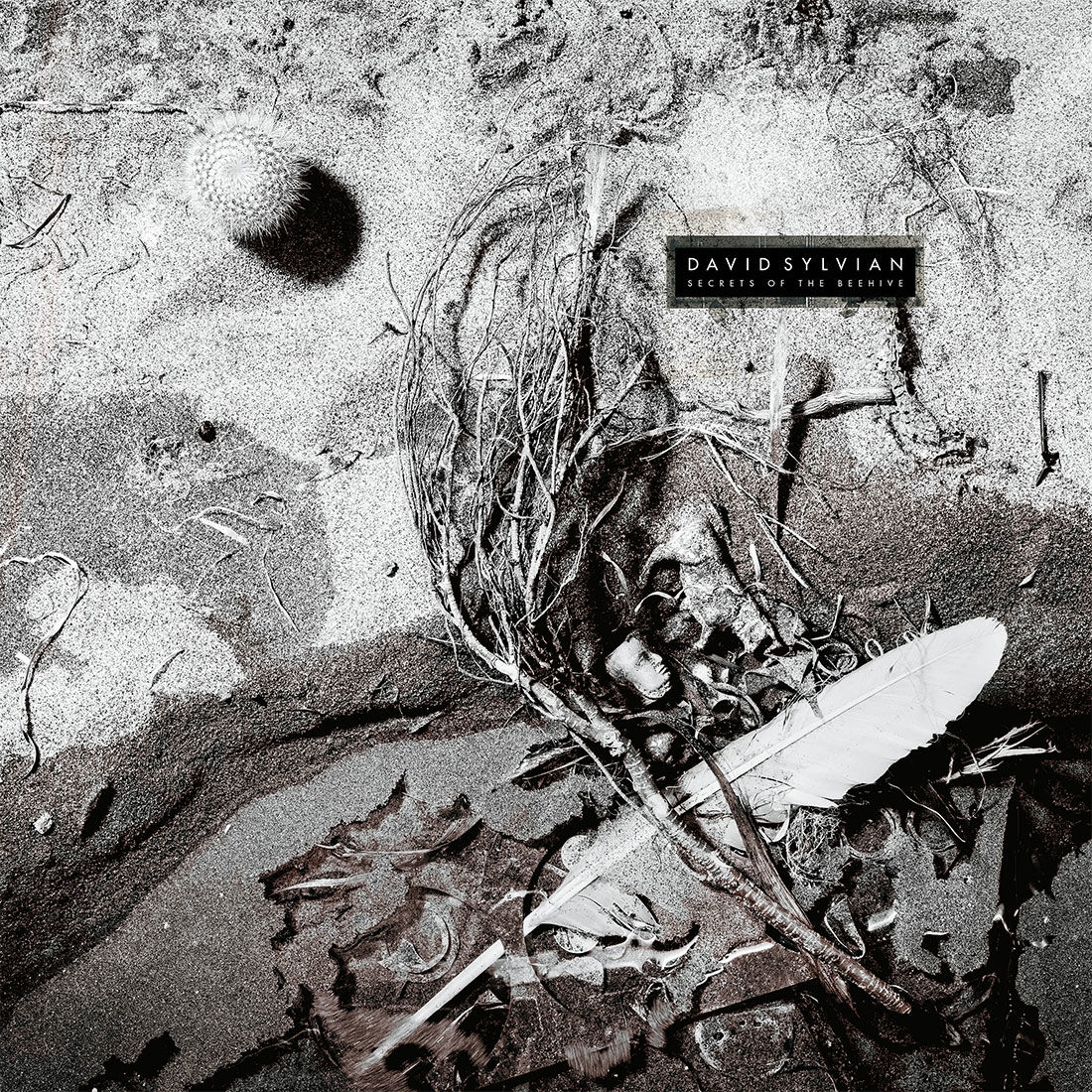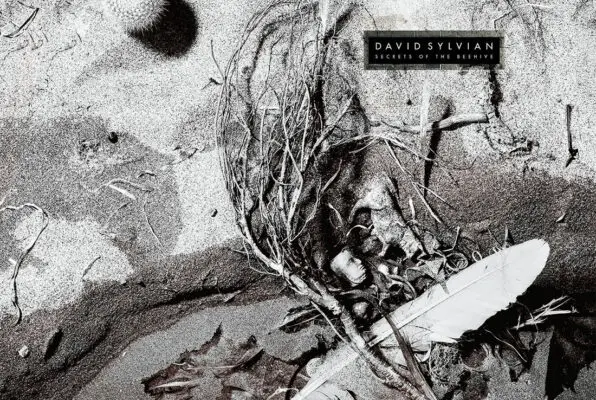Unlocking the Mysteries of David Sylvian’s Masterpiece
David Sylvian’s “Secrets of the Beehive” stands as an enigmatic masterpiece, a mesmerizing blend of introspective lyrics and haunting melodies. This album, released in 1987, has left an indelible mark on the world of music, captivating listeners with its ethereal beauty. Join us on a journey as we uncover the secrets behind this iconic work, exploring its history and development, track listing, significant reviews, key themes, version/release history, and a list of similar albums that share its unique essence.
History and Development
“Secrets of the Beehive” marked a pivotal moment in the career of British musician and songwriter David Sylvian. Sylvian, renowned for his distinctive voice and avant-garde approach to music, had already established himself as a prominent figure in the post-punk and new wave scenes as the frontman of the band Japan. However, it was with his solo work that he truly came into his own as a musical visionary.
The album was recorded and released in 1987, following Sylvian’s previous solo efforts, including “Brilliant Trees” (1984) and “Gone to Earth” (1986). “Secrets of the Beehive” continued to showcase Sylvian’s evolution as an artist, departing from the electronic and experimental soundscapes of his earlier work and embracing a more acoustic and introspective style.
Sylvian collaborated with a talented group of musicians on this album, including Ryuichi Sakamoto, Danny Thompson, and David Torn, among others. This collective effort contributed to the album’s rich and textured sound, creating a sonic landscape that perfectly complemented Sylvian’s introspective lyrics.
For more in-depth insights into the development of “Secrets of the Beehive,” you can read an interview with David Sylvian himself on The Quietus.
Track Listing
“Secrets of the Beehive” features eight tracks, each a carefully crafted gem that adds to the album’s mystique and allure. Let’s take a closer look at each of them:
- September: The album opens with “September,” a hauntingly beautiful track that sets the tone for the entire album. Sylvian’s ethereal vocals and poetic lyrics immediately draw listeners into his world of introspection and melancholy.
- The Boy with the Gun: This track takes a darker turn, exploring themes of violence and innocence lost. The haunting instrumentation and Sylvian’s evocative singing create a sense of unease that is both captivating and unsettling.
- Maria: “Maria” offers a more intimate and gentle side of the album, with its delicate piano melodies and heartfelt lyrics. It’s a poignant reflection on love and longing.
- Orpheus: Named after the legendary poet and musician of Greek mythology, “Orpheus” is a standout track that showcases Sylvian’s songwriting prowess. Its dreamlike quality and enigmatic lyrics make it a fan favorite.
- The Devil’s Own: “The Devil’s Own” delves into the complexities of desire and temptation. The interplay between Sylvian’s vocals and the instrumentation creates a sense of tension that underscores the lyrical themes.
- When Poets Dreamed of Angels: This song is a haunting meditation on mortality and the passage of time. Sylvian’s introspective lyrics are beautifully complemented by the melancholic music.
- Mother and Child: “Mother and Child” is a tender and introspective track that explores themes of family and connection. The delicate instrumentation adds to the emotional depth of the song.
- Let the Happiness In: Closing the album, “Let the Happiness In” is a tranquil and uplifting song that offers a glimmer of hope amidst the introspection and melancholy that permeates the rest of the album. It serves as a poignant conclusion to this musical journey.
Significant Reviews of The Secrets of the Beehive
“Secrets of the Beehive” received widespread critical acclaim upon its release and has continued to be celebrated by music enthusiasts and critics alike. Let’s take a look at some of the significant reviews that have shaped its legacy:
- AllMusic (4.5/5 Stars): AllMusic praised the album, calling it “a masterful record of understated beauty and elegance.” The review highlighted Sylvian’s poetic lyricism and the album’s lush instrumentation as standout features.
- Rolling Stone: Rolling Stone lauded the album’s “sublime and ethereal” qualities, praising Sylvian’s introspective songwriting and the album’s evocative atmosphere.
- Pitchfork (8.5/10): Pitchfork’s retrospective review of the album in 2019 acknowledged its enduring appeal, describing it as “a timeless work of art” that continues to resonate with listeners.
- The Guardian: The Guardian hailed the album as a “quiet masterpiece” and commended Sylvian for his ability to craft songs that are “simultaneously intimate and universal.”
These reviews reflect the enduring impact and critical acclaim that “Secrets of the Beehive” has garnered over the years, solidifying its status as a classic in the world of music.
For a deeper dive into critical reviews and analyses of the album, you can explore the archives of Pitchfork and The Guardian.
Key Themes
“Secrets of the Beehive” explores a myriad of themes, each delivered with lyrical depth and musical finesse. Some of the key themes that permeate the album include:
- Introspection: The album is a deeply introspective journey, with Sylvian’s lyrics often delving into the inner workings of the human psyche. It invites listeners to contemplate the complexities of the human experience.
- Mortality: Many songs on the album grapple with the passage of time, mortality, and the impermanence of life. These themes add a layer of depth and poignancy to Sylvian’s lyrics.
- Love and Loss: Throughout the album, Sylvian explores the themes of love, longing, and loss. His poignant lyrics capture the bittersweet emotions associated with these universal human experiences.
- Nature and Imagery: The album is replete with references to nature and vivid imagery. Sylvian’s use of symbolism and metaphor adds a rich layer of complexity to the lyrics.
- Mythology and Archetypes: “Secrets of the Beehive” draws inspiration from mythology and archetypal figures, such as Orpheus. These references add a mythic quality to the album’s storytelling.
Version/Release History
“Secrets of the Beehive” has seen several releases and versions over the years, each contributing to its enduring legacy. Here are some notable releases and reissues:
- Original Vinyl Release (1987): The album was initially released in 1987 in both vinyl and CD formats, garnering critical acclaim upon its debut.
- Remastered CD (2003): In 2003, the album was remastered and reissued on CD, offering improved sound quality for a new generation of listeners.
- 180-Gram Vinyl Reissue (2018): Vinyl enthusiasts rejoiced when a 180-gram vinyl reissue of the album was released in 2018. This edition aimed to capture the warmth and richness of analog sound.
- Digital Streaming Services: “Secrets of the Beehive” is readily available on various digital streaming platforms, ensuring its accessibility to a global audience.
These releases have allowed the album to reach new generations of music lovers while preserving its original charm and artistic integrity.
For more information on the album’s various releases and formats, you can visit David Sylvian’s official website.
List of Similar Albums
If you find yourself captivated by the haunting beauty of “Secrets of the Beehive,” you may want to explore other albums that share its unique essence. Here is a list of albums that evoke a similar mood and aesthetic:
- Talk Talk – “Spirit of Eden” (1988): Mark Hollis, the lead singer of Talk Talk, crafted an album that transcends genres, much like Sylvian’s work. “Spirit of Eden” is known for its atmospheric and introspective sound.
- Cocteau Twins – “Heaven or Las Vegas” (1990): This album by the Cocteau Twins offers ethereal vocals and dreamlike melodies, creating a sense of otherworldly beauty reminiscent of Sylvian’s work.
- Nick Drake – “Pink Moon” (1972): Nick Drake’s haunting and intimate folk songs resonate with themes of introspection and melancholy, making “Pink Moon” a classic for those drawn to the emotional depth of “Secrets of the Beehive.”
- Mark Hollis – “Mark Hollis” (1998): After his time with Talk Talk, Mark Hollis released a self-titled solo album that mirrors the introspective and minimalist qualities of Sylvian’s work.
- Harold Budd & Brian Eno – “The Pearl” (1984): This collaborative effort between ambient pioneers Harold Budd and Brian Eno creates a serene and contemplative sonic landscape that aligns with the mood of Sylvian’s album.
For a more extensive exploration of similar albums and their connections to “Secrets of the Beehive,” you can listen to music podcasts like Song Exploder and Switched on Pop.
The Secrets of the Beehive
“Secrets of the Beehive” remains a testament to David Sylvian’s artistic genius and his ability to craft music that transcends time and genre. Its haunting melodies, introspective lyrics, and evocative themes continue to resonate with listeners, making it a timeless classic in the world of music. Whether you’re a longtime fan or discovering this masterpiece for the first time, the album’s secrets are waiting to be unlocked, inviting you to immerse yourself in its enigmatic beauty.

